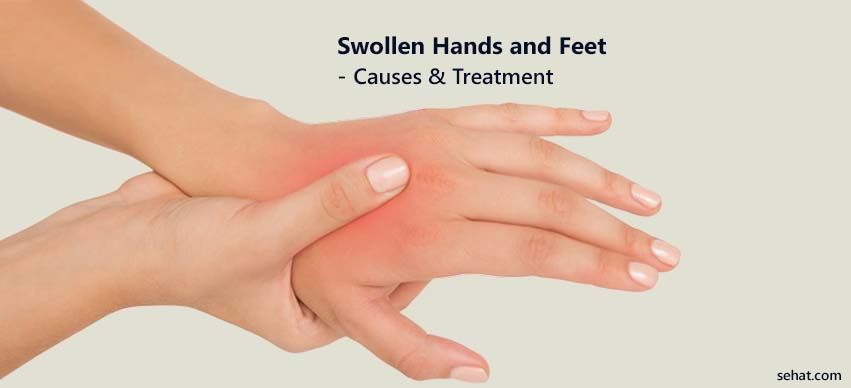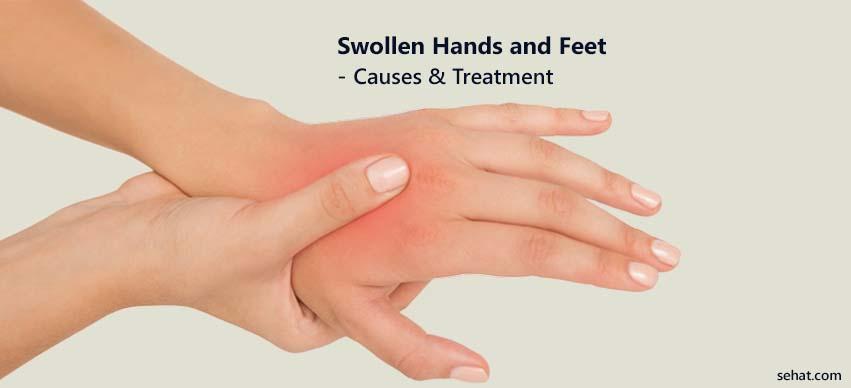How Communities Are Changing the Way We Think About Aging in..
8 Min Read


Swelling means any kind of enlargement with the cause being some problem within the skin or as a result of some major functional defect within the body which causes the hands and feet to swell.
The swelling of hands and feet is also called edema in medical terms, which means a collection of fluid between the tissue spaces of hands and/or feet. Likewise, swelling of hands and feet can be painful or painless depending upon the underlying cause for the same. If you are having a doubt why are my hands and feet swollen then This article will give you a brief idea about the potential causes for swollen hands and feet along with the treatment of each cause.
A probable diagnosis of swollen hands and feet can be drawn from a detailed case history including the onset of presenting signs and symptoms, unilateral (one side) or bilateral (both sides) and related history of previous illness or medications; confirmed with the help of relevant laboratory or imaging tests.
Swelling of hands and feet can either be due to a local cause that is pertaining to that specific hand or leg or it can be a result of some systemic illness. Accordingly, the causes of swollen hands and feet can be localized or systemic.
Some common localized causes for swelling of hands and feet are mentioned in the table below;
| Cause | Description |
| Cellulitis | Cellulitis is a bacterial infection of the skin following a cut or wound. It usually occurs in the legs, but can also affect the skin of arms, face or other areas of the body. Cellulitis is not contagious but if left untreated, it can spread to other organs through blood and impair their functioning. Some causes of cellulitis include;
Diabetes mellitus is an additional risk factor for the development of cellulitis Cellulitis presents as;
|
| Compartment Syndrome | This syndrome occurs when excess pressure builds up within an enclosed muscular space following;
|
| Chronic Venous Insufficiency | This condition occurs when the valves of veins in legs do not function properly resulting in the improper circulation of blood and stasis of blood in the legs. Chronic venous insufficiency causes blood to pool or collect in the legs. |
| Deep Vein Thrombosis (DVT) | Deep vein thrombosis is a condition that occurs due to the formation of a blood clot in a vein, usually the deep leg vein. DVT presents as leg pain and swelling, the heaviness of affected leg and redness of skin overlying the vein. DVT needs immediate investigation and medical treatment as the clot can dislodge and travel to the lungs, brain or heart causing major complications. |
| Lymphedema | Lymphedema occurs when lymph nodes get destroyed or when there is an obstruction to the flow of lymph causing the lymph fluid to accumulate in legs. The affected arm or leg becomes heavy, stiff with swelling of fingers. There is pain or discomfort and a limited range of movements. |
Some common systemic illnesses causing swollen hands and feet include;
| Angioedema | This condition is the rapid development of swelling beneath the skin especially face. It may also affect the hands, feet and also the respiratory tract and lungs in severe cases. Angioedema occurs as a result of a severe allergic reaction to things such as certain foods, plants, seafood, and medications, insect bites or stings, pollen, and animal dander. |
| Cardiac Diseases | This includes congestive heart failure or right-sided heart failure, hypertension and medicines used for the treatment of hypertension can cause chronic swelling of feet. In heart failure, blood pools in the legs and ankles as the heart loses its capacity to pump blood efficiently. |
| Liver Cirrhosis | Liver cirrhosis is irreversible damage to the liver which causes accumulation of fluid within the abdomen (ascites) as well as feet (edema). Liver cirrhosis occurs commonly due to hepatitis and alcoholism. Edema is also associated with other symptoms like;
|
| Protein-Energy Malnutrition | Low levels of proteins in the blood can cause swelling of hands and feet as protein is necessary to hold salt and water within the blood vessels. When protein depletes in blood, fluid leaks out and causes swelling. |
| Renal Causes | Swelling of hands and feet is a common symptom of kidney diseases like nephrotic syndrome, acute glomerulonephritis, and chronic renal failure; nephrotic syndrome can also cause swelling of the whole body |
| Pregnancy | Pregnancy can cause swelling of legs as the gravid uterus puts pressure on inferior vena cava (major vein which carries blood from the lower half of the body to heart). Swelling of legs during pregnancy is a fairly common occurrence that resolves soon after the delivery of the baby. However, fluid retention can lead to a serious illness called pre-eclampsia, which is a medical emergency. |
Swollen hands and feet which are unilateral or one-sided can be seen in conditions like;
Bilaterally swollen hands and feet can be seen in;
It is quite evident from the list above that swollen hands and feet could be a cause for a potential deep-seated illness that needs immediate evaluation and urgent medical treatment.
If you happen to notice any such swelling of hands and feet, it is necessary to report it to a doctor nearby and seek treatment for it as soon as possible.